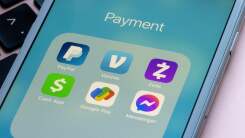As a writer with an urban community education background and a Brummie (Birmingham) English accent, I aim to provide you with straightforward information using medical vocabulary. In this article, we will explore whether the Internal Revenue Service (IRS) is truly planning to tax your transactions made through popular payment platforms like Venmo, PayPal, and Cash App.
The Truth Behind IRS Taxation on Payment Platform Transactions
Rumors have been circulating about the possibility of the IRS imposing taxes on transactions conducted via digital payment platforms such as Venmo, PayPal, and Cash App. However, it is important to clarify that these claims are entirely false. The IRS does not currently impose taxes directly on individual transactions made through these platforms.
It is crucial to understand that taxation by the IRS primarily focuses on income generated from various sources rather than individual transactions themselves. Therefore, unless you are receiving income or making profits through these payment apps that meet certain thresholds set by the IRS for taxable events – typically associated with business activities – your personal payments remain untaxed.
The Role of Reporting Requirements in Tax Compliance
While direct taxation may not apply to most individuals’ everyday use of Venmo or other similar apps for personal purposes like splitting bills or paying friends back for dinner outings or shared expenses; there are reporting requirements in place for businesses utilizing these platforms extensively.
If you operate a business where significant amounts flow through digital payment services like Venmo or PayPal regularly – exceeding specific thresholds determined by the IRS – it becomes essential to comply with reporting obligations. These obligations include providing accurate records of income received via these channels when filing tax returns.
In summary: if you’re just using these apps casually for personal transactions, you can rest assured that the IRS won’t be taxing your Venmo, PayPal, or Cash App activities. However, if you’re running a business and utilizing these platforms extensively for income generation, it is crucial to understand and fulfill your reporting requirements.
Understanding Taxation Policies for Financial Transactions
While the IRS does not currently tax individual transactions made through popular payment platforms like Venmo or Cash App directly, it is important to note that financial transactions in general may still be subject to taxation under certain circumstances. For instance, interest earned on funds held within these apps may be taxable as part of your overall income.
To ensure compliance with tax regulations and avoid any potential issues with the IRS regarding financial transactions conducted through digital payment platforms, it is advisable to consult a qualified tax professional who can provide personalized guidance based on your specific situation.
In Conclusion
In conclusion, despite rumors suggesting otherwise, the IRS does not currently impose taxes on personal transactions made through Venmo, PayPal, or Cash App. These claims are unfounded. However, businesses using these platforms extensively must adhere to reporting obligations set by the IRS when meeting specific thresholds related to their income generated from such sources. It’s always wise to seek advice from a qualified tax professional for personalized guidance regarding taxation policies surrounding financial transactions conducted via digital payment services.

